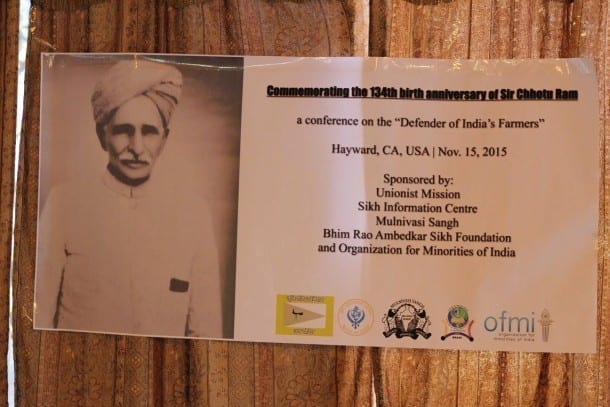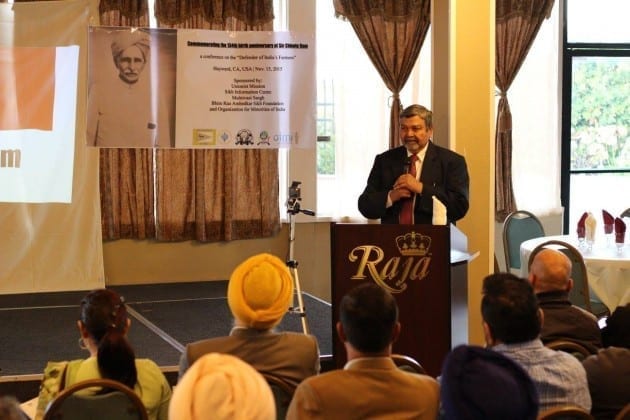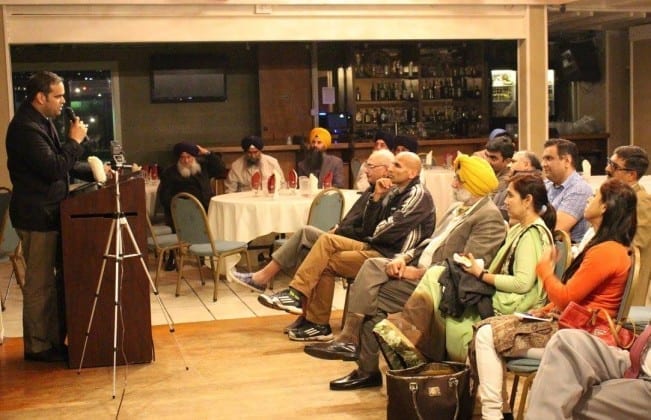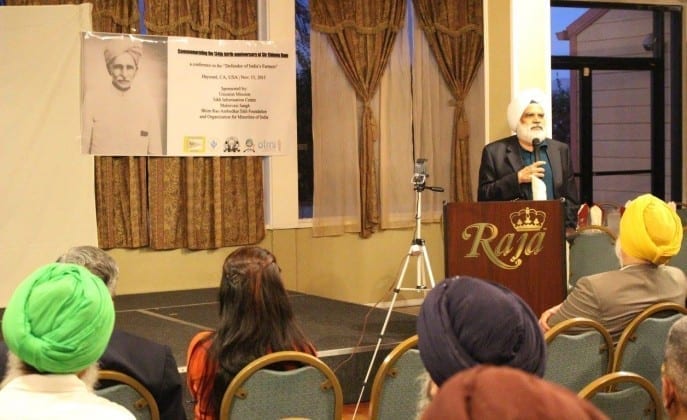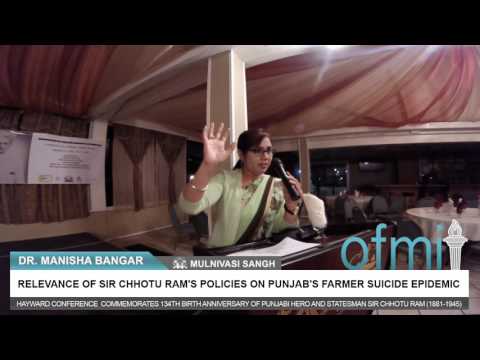HAYWARD, California, USA—Traveling from Hyderabad, India to join a California gathering of Indian minorities in commemorating the 134th birth anniversary of legendary Punjabi statesman Sir Chhotu Ram, Dr. Manisha Bangar said, “His policies are urgently relevant to Punjab’s modern farmer suicide epidemic.”
Last year, India’s National Crime Records Bureau reported that farmer suicides account for 11.2% of all suicides in India, where approximately half of all Indians work in the agricultural sector. According to The Tribune: “A Punjab government survey report says 5,000 farmers and farm labourers committed suicide in Punjab between 2000 and 2010, which means three suicides every two days.” Some, however, believe the rate is far higher than official statistics suggest, with Baba Nanak Education Society calculating 50,000 Punjabi farmers committed suicide between 1998 and 2008 — a rate of 5,000 a year.
Praising Ram as “defender of India’s farmers,” Dr. Bangar (vice-president of Indian human rights group Mulnivasi Sangh) joined eight other speakers at the Nov. 15 conference in Hayward, CA to examine the life and legacy of the founder of pre-partition Punjab’s Unionist Party.
“He fought for education, self-respect, and self-confidence of farmers who were exploited by money lenders and pushed to take extreme steps like suicide,” said Dr. Amrik Singh, an ethnic studies professor from University of California, Sacramento. As they explained the Unionist Party’s vision for a secular and pluralistic society that rejected communal politics, speakers agreed with Dr. Singh: “Sir Chhotu Ram’s death was a great blow to real freedom in India.”
Referring to the Second World War, Sir Chhotu Ram (who died in 1945) said, “My hope is that, after this war, Hindustan will be free. And it will be free in a real sense.” Dr. Singh painted a picture of Ram standing at a turning point in Indian history as backers of communal vote bank politics worked tirelessly against him to segregate communities into religion-based political parties. “He founded the Unionist Party in 1923 after discovering how, to his frustration, Arya Samaj and the Indian National Congress endorsed Brahmanism by collaborating with the British Empire,” said Singh. “The 20-year electoral triumphs of the Unionists in Punjab was so successful at derailing the designs of British-controlled parallel Mahatmas, freedom fighters, and peace prophets that they had to resort to a complex series of pacts and resolutions to achieve their goals of communal division.”
Speakers generally portrayed the real goal of India’s better-known pre-independence politicians — including Mohandas Gandhi, Muhammad Ali Jinnah, and Jawaharlal Nehru — as a “partition based on hatred.” Speaking from Bhim Rao Ambedkar Sikh Foundation (BRASF), M. R. Paul touched on the dominance of Aryan ideology in Indian society. “For the past several thousand years, Aryanism has divided and sub-divided people into a caste system for purposes of destroying the unity of the masses and empowering a few supremacists,” said Paul, pointing to Hindutva — the Hindu supremacism of India’s ruling Bharatiya Janata Party — as an example.
Amar Daroch, from Shri Guru Ravidass Sabha (Fresno), agreed that violent enforcement of the Hindu caste system undergirds modern problems of social division and communal conflict. Citing Manusmriti, the Hindu law-book encoding caste practice, Daroch applauded Sir Chhotu Ram’s pluralistic vision as a contrasting perspective similar to that of Dalit civil rights champion Dr. B. R. Ambedkar, who famously burned Manusmriti.
An organization committed to teaching of Sri Guru Granth Sahib, BRASF credits the legacy of Dr. Bhim Rao Ambedkar as necessary for socially uplifting the oppressed by ending caste, themes on which Founding Director Dilbag Singh touched heavily in his remarks. “Shri Guru Granth Sahib ji’s unifying message that the human race is one led Dr. Ambedkar to say that it represents a casteless society where there is no racial discrimination,” said Singh. “Understanding Sir Chhotu Ram’s legacy is essential to standing against the Aryan Myth of Congress, RSS, and the BJP that they are using to try to create a world order based on the splintering and segregation of society along caste lines.”
Other speakers included Nanak Singh (BRASF), Balbir Singh Raggi, and Raj Singh Rohit.
Bhajan Singh, Founding Director of Organization for Minorities of India, served as Master of Ceremonies for the conference. In closing remarks, Singh said, “We can only learn lessons for overcoming the realities of today’s obstacles and achieving tomorrow’s unity by remembering the warnings of yesterday given by our predecessors, intellectuals, community leaders, and religious figures. We are determined to correct the mistake of failing to recognize gems in our midst like Sir Chhotu Ram. Today, let’s recognize the lives and legacies of true heroes so our future generations can live in security and harmony.”

